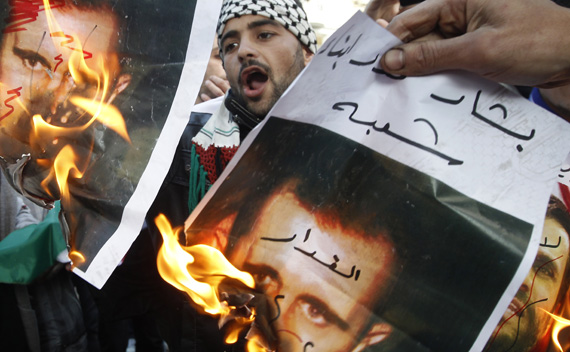Guest Post: BRICS in the UNSC and the Prospects for Syria

This Monday, the United Nations Security Council will meet to consider how to react to the Syrian regime’s violent oppression on protests. My colleague, Isabella Bennett, who holds a B.A. from Georgetown University and has lived in China and Brazil, offers her assessment.
Late Monday, the United Nations Security Council (UNSC) will hold a meeting to discuss the escalating government crackdown in Syria that has killed 140 people in the past two days and resulted in the disappearance of 3,000 people since March.
Opposition from the world’s rising powers has paralyzed the UNSC since late May, when European members submitted a draft resolution to condemn the brutal oppression.
China and Russia are predictably skittish at the idea of sanctioning yet another foreign humanitarian intervention. They fear that if the UN Security Council is entitled to investigate human rights abuses and use force against national governments, it might act upon longstanding outrage at human rights abuses in their own nations. Therefore, Russia has traditionally allied with the Syrian regime, and continues to insist that “national dialogue is the best way to solve the internal problems” in Syria. (Conspiracy theories are also circulating, accusing Israel, the United States, and France of causing the current Syrian crisis because Syria supports Iran and pursues a “unique style of development"that can serve as a role model for Arab people”).
Chinese foreign ministry spokeswoman Jiang Yu echoed Russian support for Assad’s regime, declaring, “the Chinese government supports Syria’s efforts to protect its sovereignty and stability.” The state-run newspaper, China Daily, also ran a headline on Monday proclaiming, “Syria to undermine ‘new chapter of conspiracy,’” and included only the Assad regime’s narrative that called protesters “war-makers and blood traders.” To be sure, China’s blanket resistance to international interventions has slackened in recent years. In 2007, for example, it voted to deploy a joint African Union/UN peacekeeping mission to Darfur. Still, the Chinese shift took four years and the mass murders in Darfur generated an almost global consensus and outrage, so it is not a precedent that will likely be emulated regarding action in Syria. Finally, China also argues foreign military interventions rarely improve conditions for civilians, and is quick to liken international interventions to Western colonialism.
Russian and Chinese support for UNSC resolution 1973, which authorized force in Libya to protect civilians was a marked departure from this stance, but similar support toward Syria will not be displayed due to contextual distinctions. In the Libya case, a veto would have betrayed Arab League allies of Russia and China, who directly appealed for an internationally enforced no-fly zone. Furthermore, they—along with Brazil and India—lambasted NATO for overstepping the UN mandate to attempt regime change.
For their part, Brazil and India also define their foreign policies in opposition to traditional Western colonialism, are “very prickly about developing-nation sovereignty,” and abstained from UNSC resolution 1973. The stagnated Libya mission, reports of Libyan civilian casualties, and NATO’s increasing alignment with the Libyan rebels have only fed their criticism and sharpened calls for “political and diplomatic efforts” to resolve the crisis. Rather than turn to the UN Security Council, Brazil, India, and South Africa, have instead elected to dispatch deputy foreign ministers “to seek an end to the violence.”
In response to the unified opposition from the Brazil, China, India, Russia (BRIC) bloc of nations, British Foreign Secretary William Hague admitted that
“There is no prospect of a legal, morally sanctioned military intervention.”
Given the political fatigue—not to mention war weariness—on both sides of the aisle in the United States after the weekend’s debt debacle, and European preoccupation with sovereign debt crises, it would probably be wise to accept Hague’s suggestion:
“We should be frank in admitting that and then working with the ones that we have.”
The United States should therefore proceed with the second set of unilateral sanctions it is currently considering, and pressure its allies to follow suit. Even attempting to refer Assad to the International Criminal Court (ICC) would trigger obstruction from UNSC members who see the ICC condemnation of Libyan leader Muanmar al-Qaddafi as an excuse to continue the Libya mission. Tonight, therefore, the United States should advise the Security Council to draft a resolution with language calling for sanctions including a arms embargo, travel ban, and asset freeze, but devote time and diplomatic capital to working outside the Security Council, at least for now.
 Online Store
Online Store
